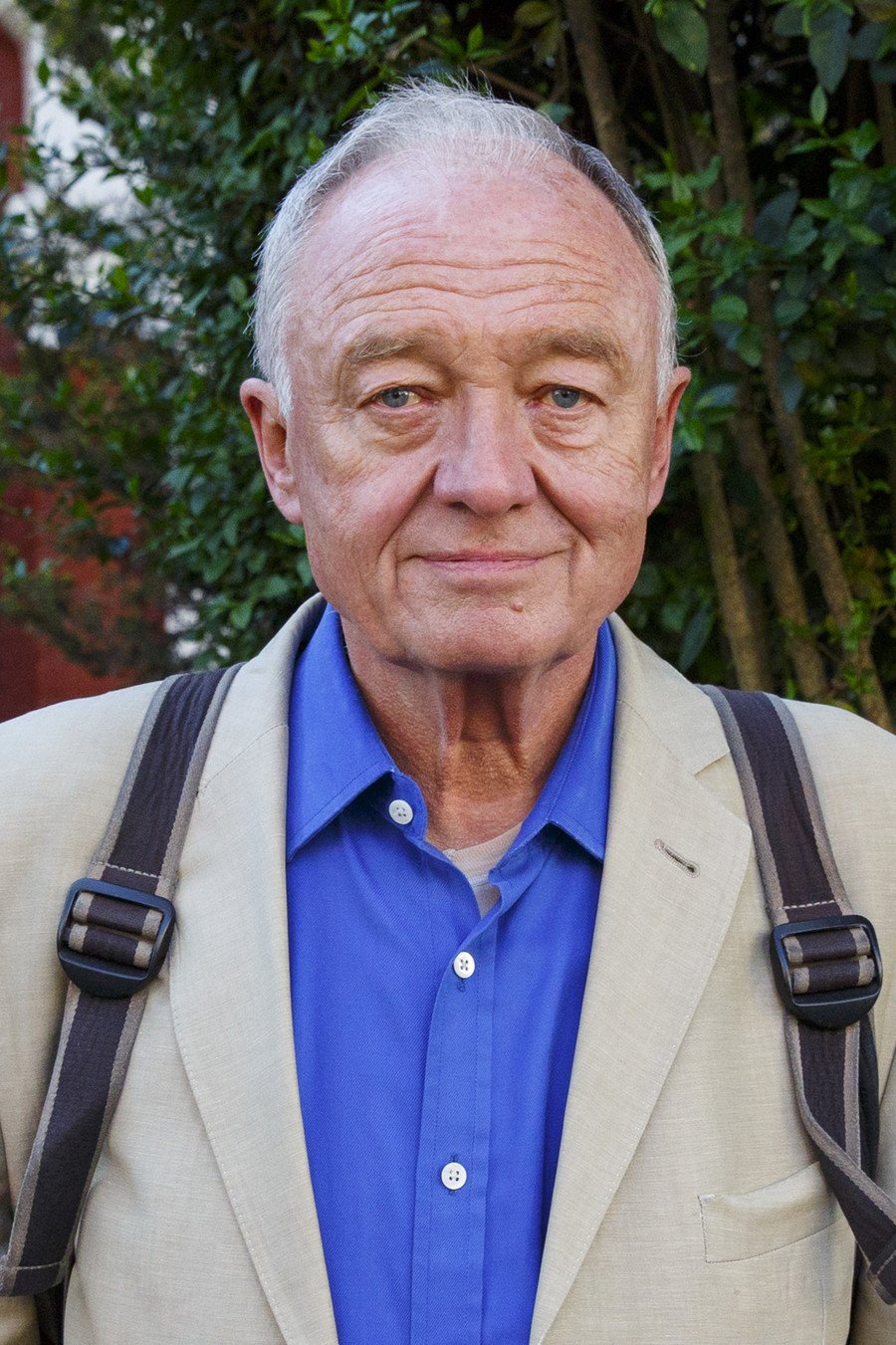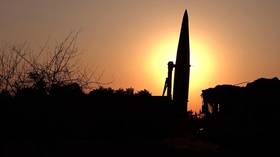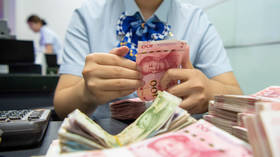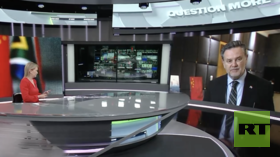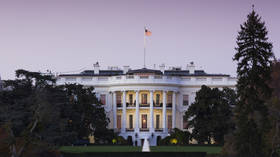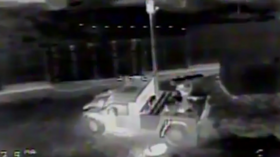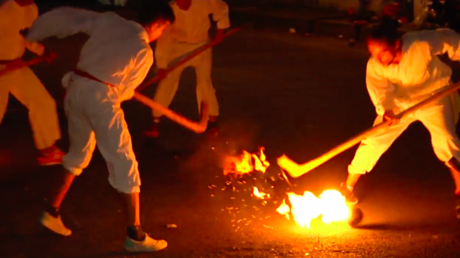Belligerence in all directions: Trump seeks to reassert control of Latin America – Ken Livingstone
Trump is escalating attempts to push through regime change in Latin American countries that are not US puppets, while maintaining a hypocritical silence when it comes to the human rights abuses of US allies like Saudi Arabia.
Recent years have seen a resurgent of the right wing in Latin America. The first stage in the election of the next president of Brazil showed the right wing candidate Jair Bolsonaro winning 46 percent of the vote. With the final ballot just two weeks away, he is currently leading by 16 percent.
While progressive governments are still a force in the region, putting equality, education, healthcare and tackling poverty at the forefront of politics, it has been a difficult time including in Venezuela.
But it is also vital at times of crisis that we remember what those giving intentional solidarity, like ourselves, are fighting for. It is with great sadness that we remember Hugo Chavez’s death in 2013 but the ideals and gains he fought for still live on. But for those depending on the right-wing media all they think about Chavez was that he was a brutal dictator, not that he changed Venezuela for the better. Nor was he only concerned with his own nation: he set out to reshape the whole continent. He was the spark for others, who like him, wanted to address the vast inequality and free themselves from the neo-liberal system that was hurting the population.
I was honoured to meet him when he came to London in 2006 and to work with him after this. What I found most striking was that unlike so many other presidents and prime ministers, he was just a regular guy with none of the vanity or obsession with fame that disfigures so many of our leaders. He did not come from a political background and had spent his career in the military leading the fight against the guerrillas who were trying to overthrow the reactionary government of Venezuela. I was very moved when he told me what changed him. It was during a skirmish in which one of his troops, who was a good friend, was shot. Chavez held him in his arms as he slowly died, and it was at that moment that Chavez decided that both he and the country had to change.
I was speaking on the weekend at the Venezuela Solidarity Campaign, held to commemorate the twentieth anniversary of Chavez’s first election win. I told the conference we had to make certain that people knew the truth about his legacy.
Despite his vilification by the US and the media, despite the coup attempt and despite the opposition’s relentless attempts to remove him through undemocratic means, Chavez made his goal of saving Venezuela and we can see that through his achievements.
- He developed the Mission Miracle Programme which has since treated over 3.5 million cases of preventable blindness throughout Latin America
- His great housing legacy has provided 1.2 million low cost homes for Venezuela’s poorest since 2010 and is still growing strong.
- His education programmes have eradicated illiteracy in Venezuela, teaching 1.5 million adults to read and write.
- There has been a at least a sixfold increase in the number of Venezuelans getting a state pension
- He also introduced a national health service that has led to saving the lives of millions
Sadly, the Venezuelan economy now faces real challenges, the massive cut in oil prices undermined the economy given that oil exports were the biggest single factor in the country’s economy. But more damage has been done by America’s sanctions against Venezuela which started under the Obama administration but have been dramatically escalated by Trump. Those include a ban on the US purchase of any debts or accounts receivables owed to the Venezuelan government and the state-run oil giant PDVSA.
It is not surprising that the economic sanctions have increased shortages of food, medicine and other essential goods while limiting the government’s ability to solve the country’s economic problems. This hurts Venezuelans on low incomes the most. The sanctions have also increased political polarisation, making much needed dialogue more difficult just at the time when international voices are adding their support to try and move the country forwards.
During his presidential campaign Trump made clear he would seek regime change in Venezuela and you can’t accuse him of not sticking to his promise. With the sanctions against Venezuela we should be aware that this could mean big steps towards regime change and this has been accompanied by threats of military action.
It was revealed last month in the New York Times that dissident Venezuelan military officers had had a secret meeting with Trump administration officials to discuss overthrowing the current president Nicolas Maduro. The article reported that the Trump administration declined to help but the sanctions continue. The White House refused to answer questions about these talks but admitted a “dialogue with all Venezuelans who demonstrate a desire for democracy in order to bring positive change to a country that has suffered so much.”
There have already been two failed attempts to overthrow Maduro’s government with one in August in which two explosive drones failed to reach their target at a rally in Caracas.
Trump has already publicly threatened military intervention. In August 2017 saying “we have many options for Venezuela including a possible military option if necessary.”
READ MORE: Venezuela ‘a mess’ to be ‘cleaned up’ says Trump as Pence & Haley call for regime change
For decades now the US has sought to bring down progressive governments or sometimes just governments that assert their national sovereignty using a range of methods from soft coups to military coups, from sanctions to blockades and from international isolation to direct military action.
Trump’s displays of belligerence in all directions, including pressing ahead with his proposal to build a wall along the border with Mexico, have seen millions of dollars channelled into organisations working against governments that are not US puppets in order to reassert US control in the region.
It is not just Venezuela that suffers from sanctions, so does the Republic of Nicaragua and Cuba has suffered from sanctions for almost sixty years. What is never reported in the media is that these sanctions are illegal under international law. However, America is able to use its influence via its veto at the United Nations and its influence over the main international financial institutions like the International Monetary Fund and the World Bank.
Venezuela can resist Trump’s policy by getting investment in the economy and diversifying it away from total reliance on oil. Hopefully the dialogue process taking place in Venezuela and the successful recent regional elections will help set a framework for a return to normalcy and getting to grips with the challenges the country faces.
However, Trump does not just have Venezuela in his sights. Following the re-election of the Sandinistas (FSLN) in 2016, the US’s latest attack on Nicaragua is the Nicaraguan Investment Conditionality Act which aims to block loans to Nicaragua from the World Bank, the International Development Bank and other institutions. Nicaragua was receiving millions of dollars loans each year for investment in infrastructure and education and social programmes. The act has been widely condemned including by business representatives, parliament and trade unions.
Trump has also indicated a return to the hostile attitude of George W Bush when it comes to Cuba. In June last year Trump said he would roll back the modest advancements under Obama and toughened the US blockade of the island, despite most Cuban Americans opposing this. In another move to appease hard-liners, Trump expelled 60 percent of Cuban diplomats from the US.
We also need to be clear that there is an alternative to Trump’s agenda. The opposition to Trump is growing in the US, Latin America and around the world, including here in Britain, where the Labour leader Jeremy Corbyn showed real integrity by being the first national political figure to call on Theresa May to withdraw her offer to Trump of a state visit. Corbyn said “Let no-one be in doubt that I will oppose and the Labour party will oppose all those who fan the flames of fear at home and abroad and the Labour party stands unequivocally with those demonstrating against Trump and will do so until we are victorious.”
Think your friends would be interested? Share this story!
The statements, views and opinions expressed in this column are solely those of the author and do not necessarily represent those of RT.
